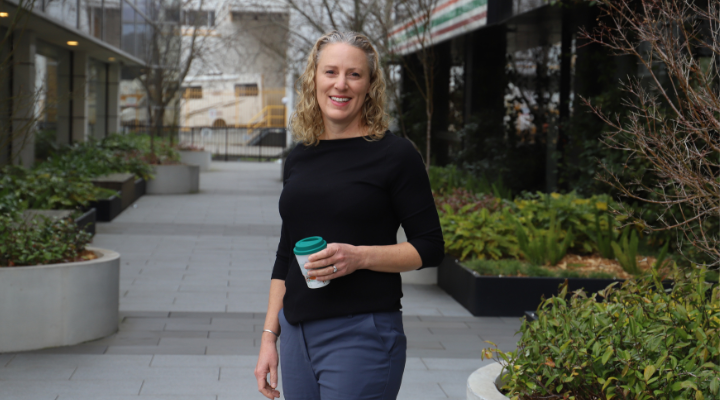
Fiona Baxter, 7-Eleven’s Head of Sustainability, reveals what lies ahead for the leading convenience chain.
What does sustainability mean for 7-Eleven?
For 7-Eleven, sustainability covers a range of elements. Our focus areas are climate action, sustainable food systems, improving human health, and, supporting local communities while ensuring the commercial sustainability of the business and that of our franchisees in the long term.
What does it mean for a 7-Eleven franchisee?
There are many layers. It is anything from complying with regulations such as the State bans on single use plastics, to providing infrastructure and services so coffee cups can be recycled. It is also sourcing ingredients and products that customers want, such as RSPCA certified chicken and Fairtrade certified coffee.
What challenges are you facing when it comes to addressing sustainability? How are you overcoming these?
Some of the challenges will continue to be the ability to source and scale more sustainable ingredients and sustainable packaging solutions. What might be a solution for a small café can be harder to implement consistently at scale across a 750 store network.
7-Eleven’s sustainable future is underway
However, operating across numerous states can also provide opportunities. For example, when we saw that all states were making moves to ban various single use plastics, we moved quickly. We worked with our suppliers to develop alternatives, and roll these out nationally before bans became into effect. This put us in a leadership position on avoiding single use plastics.
Can you tell us more about your coffee cup recycling?
As a major coffee retailer, we don’t pretend waste isn’t our problem. We take ownership by providing our customers with a solution. In 2018 we partnered with Simply Cups to recycle coffee cups. So far, we have saved some 30 million cups from landfill and have over 650 recycling units in our stores.
Although recyclable, our previous cups had plastic lining, so we worked with our supplier partners to develop plant based cups and lids. These are which now helping to reduce carbon emissions while still being recyclable through Simply Cups.
What is Fairtrade certified coffee?
Fairtrade certification of our coffee means that 7-Eleven pays a premium that goes directly to farming communities in Brazil and India where we source our beans. These communities can then invest this money in initiatives that matter to them. For instance healthcare and education, building community infrastructure and growing better quality coffee beans. Fairtrade also guarantees a floor or minimum price for coffee growers, so that farming remains sustainable through market price decreases.
Additionally, our most sustainable coffee ever includes an ongoing discount for customers choosing a reusable cup.
What’s next for 7-Eleven around sustainability?
Our sustainability strategy has some ambitious goals, so we are going to be working internally and with our supplier partners to achieve those.
We are looking at the sustainable sourcing of cocoa for our 7-Eleven brand products. We are also working to phase out palm oil in our 7-Eleven brand products by the end of 2025.
There is a goal for all of our own brand packaging to be recyclable, reusable, or compostable by 2025. We are also increasing the use of recycled and renewable packaging.
There are targets for our own carbon emissions and we are working with our electricity providers to source renewable electricity.
What are your predictions for sustainability in the petrol and convenience sector?
I think that sustainable sourcing and packaging are going to be critical areas of focus in the channel in the immediate future. Our stores sell many packaged food items, so packaging that has less impact on the environment and is easier to recycle is really important. The petrol and convenience channel continues to grow its share of the food category.

